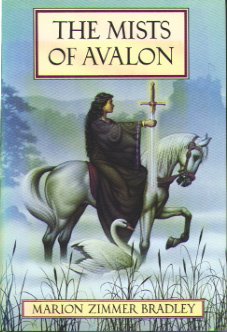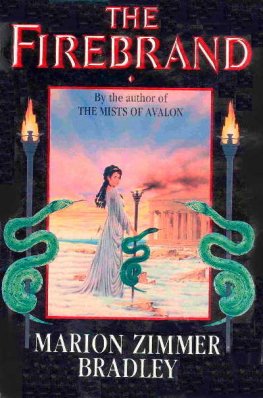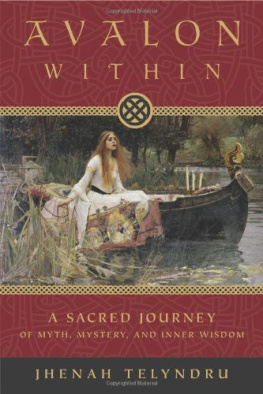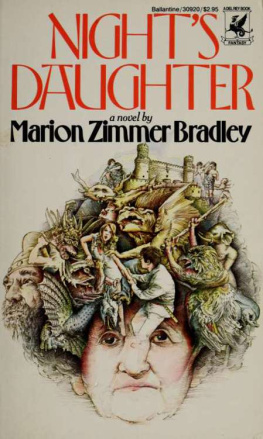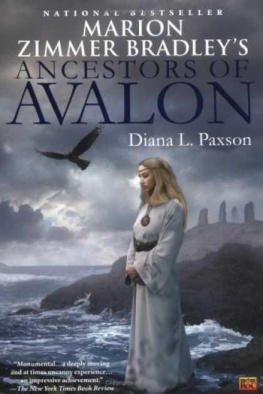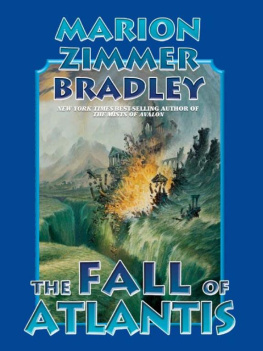Marion Bradley - The Mists of Avalon
Here you can read online Marion Bradley - The Mists of Avalon full text of the book (entire story) in english for free. Download pdf and epub, get meaning, cover and reviews about this ebook. genre: Science fiction. Description of the work, (preface) as well as reviews are available. Best literature library LitArk.com created for fans of good reading and offers a wide selection of genres:
Romance novel
Science fiction
Adventure
Detective
Science
History
Home and family
Prose
Art
Politics
Computer
Non-fiction
Religion
Business
Children
Humor
Choose a favorite category and find really read worthwhile books. Enjoy immersion in the world of imagination, feel the emotions of the characters or learn something new for yourself, make an fascinating discovery.
- Book:The Mists of Avalon
- Author:
- Genre:
- Rating:4 / 5
- Favourites:Add to favourites
- Your mark:
- 80
- 1
- 2
- 3
- 4
- 5
The Mists of Avalon: summary, description and annotation
We offer to read an annotation, description, summary or preface (depends on what the author of the book "The Mists of Avalon" wrote himself). If you haven't found the necessary information about the book — write in the comments, we will try to find it.
The Mists of Avalon — read online for free the complete book (whole text) full work
Below is the text of the book, divided by pages. System saving the place of the last page read, allows you to conveniently read the book "The Mists of Avalon" online for free, without having to search again every time where you left off. Put a bookmark, and you can go to the page where you finished reading at any time.
Font size:
Interval:
Bookmark:
Marion Zimmer Bradley
The Mists of Avalon
"... Morgan le Fay was not married, but put to school in a nunnery, where she became a great mistress of magic."
-Malory, Morte d'Arthur
acknowledgments
ANY BOOK of this complexity drives its author to sources far too many to be listed in entirety. I should probably cite, first, my late grandfather, John Roscoe Conklin, who first gave me a battered old copy of the Sidney Lanier edition of the Tales of King Arthur, which I read so often that I virtually memorized the whole thing before I was ten years old. My imagination was also stirred by varied sources such as the illustrated weekly Tales of Prince Valiant; and in my fifteenth year I played hooky from school far oftener than anyone realized to hide in the library of the Department of Education in Albany, New York, reading my way through a ten-volume edition of James Frazer's The Golden Bough and a fifteen-volume set of books on comparative religions, including an enormous volume on the Druids and Celtic religions.
In direct research for the present volume, I should give thanks to Geoffrey Ashe, whose works suggested several directions for further research, and to Jamie George of the Gothic Image bookstore in Glastonbury, who, in addition to showing me the geography of Somerset and the sites of Camelot and Guinevere's kingdom (for the purposes of this book, I accept the current theory that Camelot was the Cadbury Castle site in Somerset), guided me through the Glastonbury pilgrimage. He also drew my attention to the persistent traditions surrounding Chalice Well in Glastonbury, and the long-standing belief that Joseph of Arimathea had planted the Holy Thorn on Wearyall Hill; I also saw there many materials exploring the Celtic tradition that Jesus Christ had been educated in the wisdom religion at the temple that once stood on Glastonbury Tor.
For material on pre-Augustinian Christianity, I have used, by permission, a privately circulated manuscript entitled "The Pre-Constantine Mass: A Conjecture," by Father Randall Garrett; I have also drawn upon materials from the Syro-Chaldean liturgies, including the Holy Orbana of St. Sera-pion, as well as liturgical materials from local groups of St. Thomas Christians and Pre-Nicene Catholic groups. The excerpts from Scripture, especially the Pentecost story and the Magnificat, were translated for me from the Greek Testaments by Walter Breen; I should also cite Christine Hartley's The Western Mystery Tradition and Dion Fortune's Avalon of the Heart.
Any attempt at recapturing the pre-Christian religion of the British Isles has been made conjectural by the determined efforts of their successors to extinguish all such traces; scholars differ so much that I make no apology for selecting, among varying sources, those that best fit the needs of fiction. I have read, though not slavishly followed, the works of Margaret Murray and several books on Gardnerian Wicca. For the feel of the ceremonies, I would like to express my grateful thanks to local neopagan groups; to Alison Harlow and the Covenant of the Goddess, to Otter and Morning-Glory Zell, to Isaac Bonewits and the New Reformed Druids, to Robin Goodfel-low and Gaia Wildwoode, to Philip Wayne and Crystal Well, to Starhawk, whose book The Spiral Dance proved invaluable to me in helping deduce much about the training of a priestess; and, for much personal and emotional support (including comforting and backrubs) during the actual writing of this book, to Diana Paxson, Tracy Blackstone, Elisabeth Waters, and Ano-dea Judith, of the Darkmoon Circle.
Finally I must express loving gratitude to my husband, Walter Breen, who said, at a crucial moment in my career, that it was time to stop playing it safe by writing potboilers, and provided financial support so that I could do so: also to Don Wollheim, who always believed in me, and his wife, Elsie. Above all, and always, to Lester and Judy-Lynn del Rey, who helped me to outgrow categories in writing, always a scary business, my grateful love and thanks. And last but not least to my elder son, David, for his careful preparation of the final manuscript.
prologue
MORGAINE SPEAKS ...
In my time I have been called many things: sister, lover, priestess, wise-woman, queen. Now in truth I have come to be wise-woman, and a time may come when these things may need to be known. But in sober truth, I think it is the Christians who will tell the last tale. For ever the world of Fairy drifts further from the world in which the Christ holds sway. I have no quarrel with the Christ, only with his priests, who call the Great Goddess a demon and deny that she ever held power in this world. At best, they say that her power was of Satan. Or else they clothe her in the blue robe of the Lady of Nazareth-who indeed had power in her way, too-and say that she was ever virgin. But what can a virgin know of the sorrows and travail of mankind?
And now, when the world has changed, and Arthur-my brother, my lover, king who was and king who shall be-lies dead (the common folk say sleeping) in the Holy Isle of Avalon, the tale should be told as it was before the priests of the White Christ came to cover it all with their saints and legends.
For, as I say, the world itself has changed. There was a time when a traveller, if he had the will and knew only a few of the secrets, could send his barge out into the Summer Sea and arrive not at Glastonbury of the monks, but at the Holy Isle of Avalon for at that time the gates between the worlds drifted within the mists, and were open, one to another, as the traveller thought and willed. For this is the great secret, which was known to all educated men in our day: that by what men think, we create the world around us, daily new.
And now the priests, thinking that this infringes upon the power of their God, who created the world once and for all to be unchanging, have closed those doors (which were never doors, except in the minds of men), and the pathway leads only to the priests' Isle, which they have safeguarded with the sound of their church bells, driving away all thoughts of another world lying in the darkness. Indeed, they say that world, if it indeed exists, is the property of Satan, and the doorway to Hell, if not Hell itself.
I do not know what their God may or may not have created. In spite of the tales that are told, I never knew much about their priests and never wore the black of one of their slave-nuns. If those at Arthur's court at Camelot chose to think me so when I came there (since I always wore the dark robes of the Great Mother in her guise as wise-woman), I did not undeceive them. And indeed, toward the end of Arthur's reign it would have been dangerous to do so, and I bowed my head to expediency as my great mistress would never have done: Viviane, Lady of the Lake, once Arthur's greatest friend, save for myself, and then his darkest enemy -again, save for myself.
But the strife is over; I could greet Arthur at last, when he lay dying, not as my enemy and the enemy of my Goddess, but only as my brother, and as a dying man in need of the Mother's aid, where all men come at last. Even the priests know this, with their ever-virgin Mary in her blue robe; for she too becomes the World Mother in the hour of death.
And so Arthur lay at last with his head in my lap, seeing in me neither sister nor lover nor foe, but only wise-woman, priestess, Lady of the Lake; and so rested upon the breast of the Great Mother from whom he came to birth and to whom at last, as all men, he must go. And perhaps, as I guided the barge which bore him away, not this time to the Isle of the Priests, but to the true Holy Isle in the dark world behind our own, that Island of Avalon where, now, few but I could go, he repented the enmity that had come between us.
AS I TELL THIS TALE I will speak at times of things which befell when I was too young to understand them, or of things which befell when I was not by; and my hearer will draw away, perhaps, and say: This is her magic. But I have always held the gift of the Sight, and of looking within the minds of men and women; and in all this time I have been close to all of them. And so, at times, all that they thought was known to me in one way or another. And so I will tell this tale.
Font size:
Interval:
Bookmark:
Similar books «The Mists of Avalon»
Look at similar books to The Mists of Avalon. We have selected literature similar in name and meaning in the hope of providing readers with more options to find new, interesting, not yet read works.
Discussion, reviews of the book The Mists of Avalon and just readers' own opinions. Leave your comments, write what you think about the work, its meaning or the main characters. Specify what exactly you liked and what you didn't like, and why you think so.

